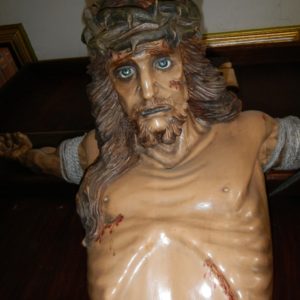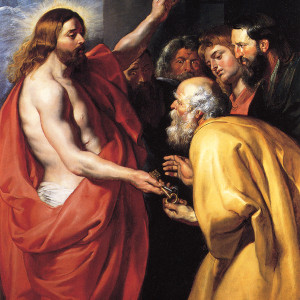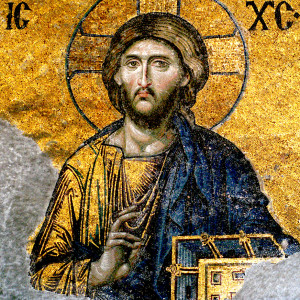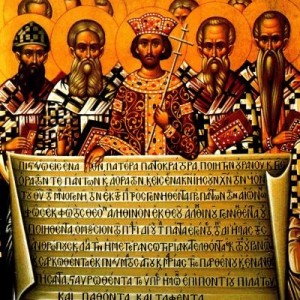Chances are, if you’ve done any reading about the Catholic Church’s vision of “the Church,” you’ve probably come across the claim that everything changed at Vatican II. Prior to Vatican II, as the story goes, the Catholic Church thought that only she was “the Church;” after Vatican II, she recognized that the Orthodox and Protestants (and perhaps even non-Christians!) also form part of the Church. But is it true?
Tag: Councils
Post-Conciliar Chaos in the Church, from a Saintly Perspective
A saintly theologian weighs in on the post-Conciliar chaos.
Did Jesus Have a Human Soul?
As Christians, we readily acknowledge that Jesus, in addition to being Divine, also had (and has) a true human body. But does Jesus also have a human soul? This is one of the earliest questions that the early Church had to resolve, and the answer is crucial for how we understand Christ Jesus.
Eastern Orthodoxy and Protestantism’s Infallibility Problem
The “infallibility problem” in Eastern Orthodoxy is more similar to the infallibility problem in Protestantism than you may realize. In each case, rejection of centralized infallibility leaves them with fallible (and hazy) collections of infallible teachings.
Reason #4 to Reject the Reformation: Ecumenical Councils
Councils are part of the history of the Church from the very beginning, as the Council of Jerusalem in Acts 15 shows. And they’re a source of potential unity between Catholics and Protestants, because so long as both sides recognize the authority of the early Ecumenical Councils, we have some common ground upon which to… Continue reading Reason #4 to Reject the Reformation: Ecumenical Councils
Do Ecumenical Councils Eliminate the Need for the Papacy?
A friend asked me about an argument against Catholicism raised by Fr. Viktor Potapov, an Orthodox priest based here in D.C., in Chapter Ten of his Orthodoxy and Heterodoxy. The argument essentially says that the early Church believed in conciliar infallibility, but that the West replaced this idea with papal infallibility. Fr. Potapov first explains… Continue reading Do Ecumenical Councils Eliminate the Need for the Papacy?
John Piper v. John Piper on the Apostles’ Creed
Harrowing of Hell (15th c.) The Apostles’ Creed declares that Jesus “was conceived by the Holy Spirit, born of the Virgin Mary, suffered under Pontius Pilate, was crucified, died and was buried. He descended into hell. On the third day, He rose again from the dead. He ascended into heaven, and is seated at the right… Continue reading John Piper v. John Piper on the Apostles’ Creed
Understanding Christ’s Humanity and Divinity
Christ Pantocrator (from the Hagia Sophia) A couple days ago, I was asked: If Jesus Christ is both fully human and fully God, was He human before the Incarnation? If He wasn’t, why would the Nestorian position be heretical, since Christ is fully divine and His humanity was only a later addition? And if He… Continue reading Understanding Christ’s Humanity and Divinity
Does the Bible Prohibit Religious Images?
Earlier, I came across this discussion, in which an iconoclast Protestant accuses the Catholic Church of eliminating the Second Commandment because we have statues… and then asks how to add an image to his post. Bravo, irony! But this is a real stumbling block for a lot of Protestant Christians, and even Catholics often are… Continue reading Does the Bible Prohibit Religious Images?
Does the Council of Nicea Reject Women’s Ordination to the Diaconate?
In yesterday’s post, I said that Canon 19 of the First Council of Nicea “ended any controversy” over whether or not women could be sacramentally ordained to the diaconate. In the comments, a few people protested that the broader context of the canon made it seem that the problem wasn’t that the would-be ordained were… Continue reading Does the Council of Nicea Reject Women’s Ordination to the Diaconate?









